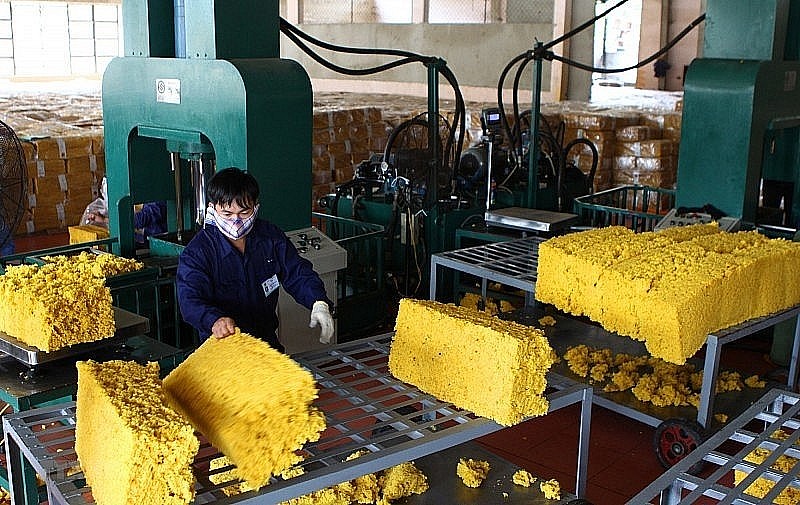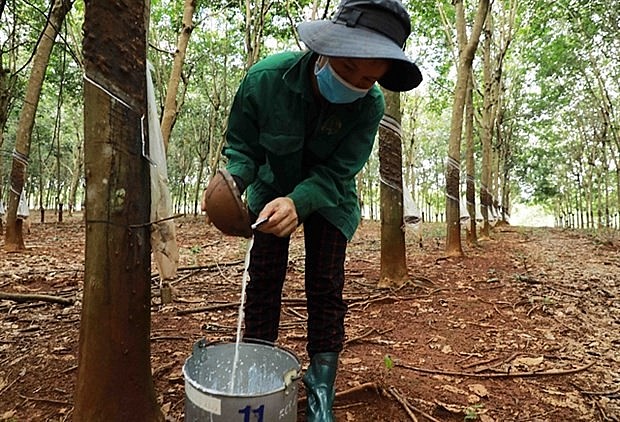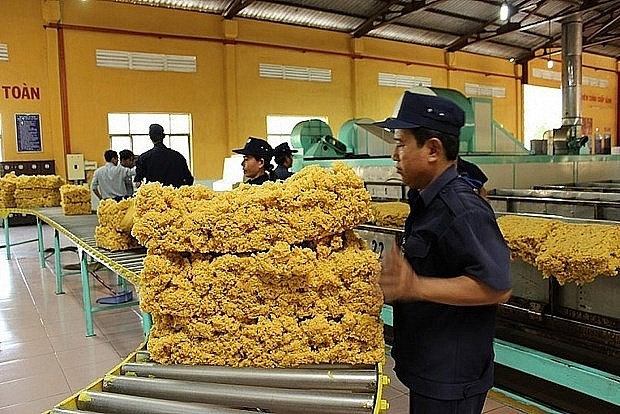
The General Department of Customs has reported that Vietnam is one of the largest rubber suppliers to Japan. In the first eight months of this year, Vietnamese rubber exports to Japan reached 5.470 tonnes worth $8.98 million, experiencing a decrease of 10.4% in volume and 27.6% in value compared to the same period last year. The average export price of rubber to the Japanese market stood at $1,565 per tonne, down 19.2% from last year.
Natural rubber is the primary product exported to Japan, with SVR CV60 accounting for the largest portion at 39.89%, followed by SVR 3L at 36.68% and SVR 10 at 13.22%. However, due to difficulties faced since the beginning of the year, both the quantity and value of rubber exports to Japan have declined. The Covid-19 pandemic has also posed challenges to Vietnam’s rubber industry in terms of competitiveness.

The Chairman of the Vietnam Rubber Association (VRA), Tran Ngoc Thuan, has emphasized that the competition in the natural rubber market is becoming more intense. Vietnam’s natural rubber still heavily relies on the Chinese market and lacks penetration in other major markets such as the US and Japan. Additionally, the disjointed national management system and policy mechanisms have caused difficulties for the industry. The import tax rate of 0% for natural rubber into Vietnam also creates competitive pressure on domestic rubber businesses.
Furthermore, the rubber product processing industry faces difficulties in competing with imported products and lacks technical barriers in trade to prevent poor-quality goods from being imported from other countries.

The Vietnam Rubber Association forecasts that the demand for natural rubber worldwide will continue to increase, providing a great opportunity for Vietnam to increase production and export turnover. However, the industry also needs to address various challenges and difficulties such as improving competitiveness, implementing quality assurance, and creating a uniform quality management system. Expanding investment in processing, forming auxiliary industries, and reorganizing the industry according to the production value chain are also crucial to improving competitiveness in the international market.
Tran Thanh Nam, Deputy Minister of Agriculture and Rural Development, emphasizes the importance of promoting sustainable development in the industry by focusing on quality assurance and international standards. Additionally, uniform quality management nationwide, advanced techniques, and product restructuring according to market requirements are essential for the industry’s success.




